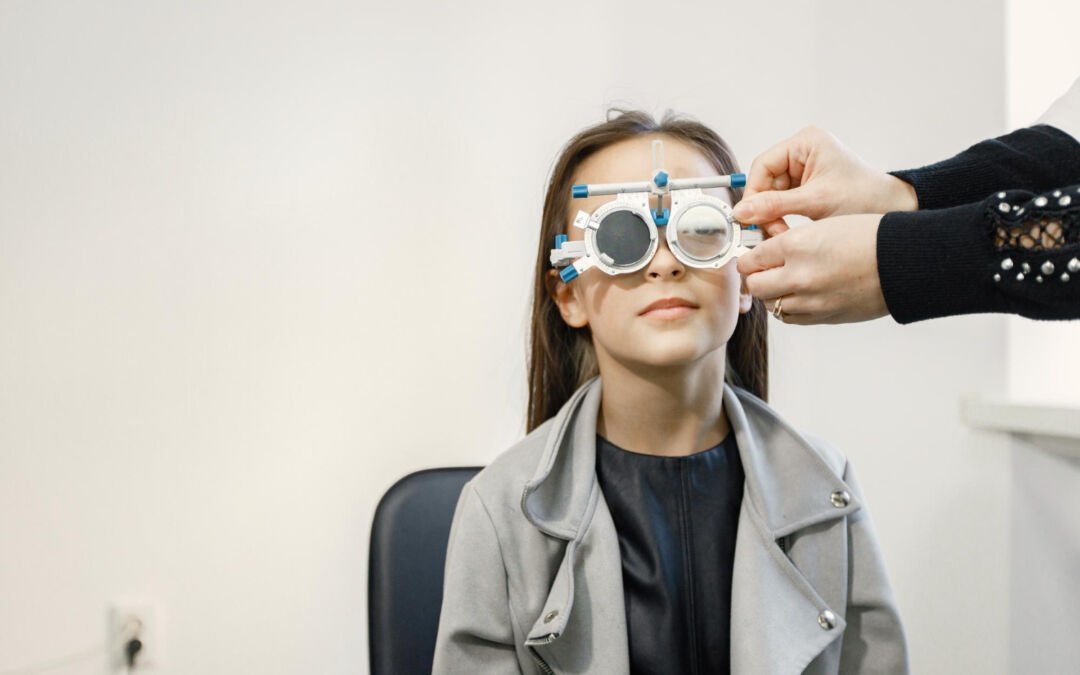We all have long lists of things we need to do in order to stay healthy. We visit the dentist twice a year, take multivitamins every morning, commit to exercise routines and nutritious diets, and much more. With so much to constantly think about, it can be too easy to let certain things slip through the cracks, especially seeing your optometrist on a regular basis. Typically, it is recommended that you get an eye exam at least once a year, especially if you’re over the age of forty or are a contact lens wearer. Keep reading to discover the importance of having regular eye exams.
The Importance of Regular Eye Exams
Accurate Prescription
When you consider the purpose of an eye exam, your first thought is likely to get an accurate prescription to improve your poor vision, and this is definitely an important aspect of an appointment with your optometrist. Only a professional optometrist is going to be able to provide you with an accurate prescription, whether you suffer from nearsightedness, farsightedness, or astigmatism.
Check for Common Eye Conditions
Besides the obvious purpose of providing patients with accurate prescriptions, optometrists also check your eyes for other common eye conditions. During your eye exam, your optometrist will be keeping an eye out for the signs of the following conditions.
Cataracts
The lenses in your eyes are made up of water and proteins, which allow light to pass through and create a clear image. These proteins can begin to clump together over time (this is a common effect of aging), causing part of the lens to cloud over. These clumps of protein are called cataracts, and the cloudy overlay creates many vision problems, including blurred vision, lens discoloration, etc. There are many tests that your optometrist can conduct during your eye exam to detect cataracts in your eyes.
Glaucoma
Your eyes are connected to your brain through your optic nerve, which is a paired nerve comprised of millions of nerve fibers. Glaucoma describes a group of conditions that cause damage to your optic nerve, which can result in vision problems. This condition does not present with any symptoms initially, but leaving it untreated can cause a loss in peripheral vision, which can worsen until vision is gone completely. Early detection of glaucoma requires regular eye exams, where your optometrist will use a series of specialized tests.
Diabetic Eye Disease
Having diabetes puts you at a greater risk of developing cataracts, glaucoma, and other diabetic eye conditions. A diabetic eye disease will negatively affect your vision by changing the blood vessels within the retina, which is vital for healthy vision. People with diabetic eye disease experience a variety of issues, including the growth of new blood vessels on the retina and vessels that are swollen or leaking. This condition can cause complete loss of vision.
Check for Other Conditions
Regular eye exams aren’t just important for the health of your eyes. They are also important for your overall health because optometrists can detect other health conditions in addition to those related directly to the eyes.
High Blood Pressure
During your eye exam, your optometrist will check the blood vessels within your eye in order to look for signs of hypertension. If your optometrist notices abnormalities with your blood vessels, such as bends/kinks, tears, swelling, etc., he or she will alert you that you are exhibiting some signs of high blood pressure. This process of detection can be extremely helpful in detecting high blood pressure in younger adults who may not be concerned with such conditions yet.
High Cholesterol
Detecting elevated cholesterol is very important to getting and staying healthy, and your optometrist can help with that. During your eye exam, your optometrist will check for the typical signs of high cholesterol that show up in the eyes, including plague within blood vessels in your retinas, fatty deposits building up on your eyelids, discolored, yellowish corneas, etc.
Be sure to schedule your next eye exam soon if it’s getting close to a year since your last visit to the optometrist or it’s been even longer than that. Even if you don’t think the prescription for your glasses or contact lenses has changed, it’s important to have regular eye exams in order to prevent many conditions that affect both eye health and overall health. Are you in the Langley, BC, area? Visit us online to schedule an appointment with our experienced optometrist.


Recent Comments